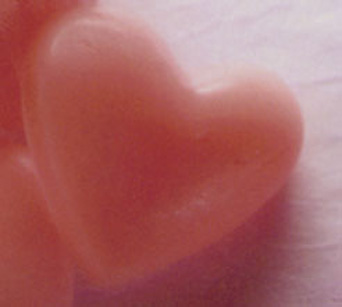The Horror of the “Uplifting”
September 21, 2006
Sometimes people just want something, they tell me, uplifting. Oddly enough, a fine piece such as this:
Is this a life? Nay, death you may it call
That feels each pain and knows no joy at all.
does not qualify.
In my experience, when people say they want something uplifting they often mean that they want to experience something bright, something rosy, something about the good in mankind or a story with a happy ending. Something, in fact, like this:
Yet these kinds of things are not uplifting, for the uplifting can never be divorced from reality. If we are truly to be edified, to be strengthened, to be encouraged, which I suppose are elements of being uplifted, this cannot be done through lies. But reality is often grim, often horrible, often dark. To deny that aspect, to ignore that element is not to be uplifted –it is to be blinkered. Now I am not one of those absurd ‘realists’ who think that horror is all there is. It seems to me that this is quite as unrealistic as the Hallmark channel. The truth does not lie in between these extremes; the truth transcends them both.
Let me also be clear that I do not think very highly of glorying in the sordid. One does not, one should not, relish the Marquis de Sade. This however, is not the problem I am griping about right now.
What I am objecting to is the identification of the uplifting with the sappy; the error of thinking that we are somehow built up or improved by gloop; the notion that sentimentality is an adequate foundation for joy or encouragement. You see, escapism is never ultimately enough. We can only escape for so long. Inexorably, through some means or another, the viciousness of evil will confront us. And then we will find that cheap solutions cannot help. Having stared evil in the face you cannot continue to glibly ignore it. Evil is so startlingly, graphically real that there comes a point where the sap of the “uplifting” is inadequate as a screen against it. But if sap is all that one has, then the foundations crumble and the supposed gain that we have acquired from our exposure to the “uplifting” is found to be a refuge of lies, a god that cannot save, a house built upon the sand whose fall is great. The truly uplifting is that which can stand against evil, and claim to be more fundamental, more powerful. It is, in short, the grace of God –and the grace of God never denies the existence or the heinousness of evil: it rather overcomes it.
Sap, the “uplifting” and all their sugar-coated crew are a species of unmortared wall which will collapse under the weight of the oppressor, for mere denial does not change the bitter facts. But something which can face those bitter facts and offer, not a denial, not an ignoring, but an answer, a victory, a transformation, this only can stand. It does not delight in evil, or rejoice in iniquity; but it does not deny its existence.
Grumble
September 7, 2006
Once there was a mean man named Grumble…. However, I might be infringing a copyright if I went on with that excellent story.
As it is, I wish to grumble about something. Specifically, I wish to complain about Christians (as, for instance, C. Horn III in the Evangelical Dictionary of Theology article on “Sexual Ethics”) using an inane and meaningless construction about the “Judeo-Christian” this or that. I object to it primarily because Judaism and Christianity are not on the same plane. I will go so far as to assert that Judaism is a Christian heresy. They are not the independent but equally valid successors of some indeterminate tradition. Contemporary Judaism is not the heir of Abraham, Moses or the Prophets. The Christian church is. To speak of a Judeo-Christian tradition is misleading, because it isn’t a Jewish tradition at all. Of course, it came through the Jews; of course, contemporary Judaism shares some points of contact. Unfortunately, none of that is the point. The point is that that tradition led up to Christ, and the Church is Christ’s body. We are the seed of Abraham and heirs according to the promise.
I object to it also of course, on the grounds that there seems to be no point in talking in that way except for the sake of political correctness. Inaccuracy in the name of policital correctness has been tolerated too long. The emasculation of theology in the interest of having Christ sit down to a meal with a Belial is a long-standing tradition. But it is contrary to the traditions we have received.
Yes, yes, Judaism has ethical similarities to Christianity; so does Confucianism. Sure, Judaism derives them from part of the same source that Christianity does. But Christ is Lord of ethics; the fact that all men have been given some idea of right and wrong does not change the exclusive claims of Christ, or that it is the Trinitarian God who legislates morality. You know, the house on the sand and the house on the rock may have looked like they were designed by the same architect –and perhaps they were; but one was actually built by a fool.
